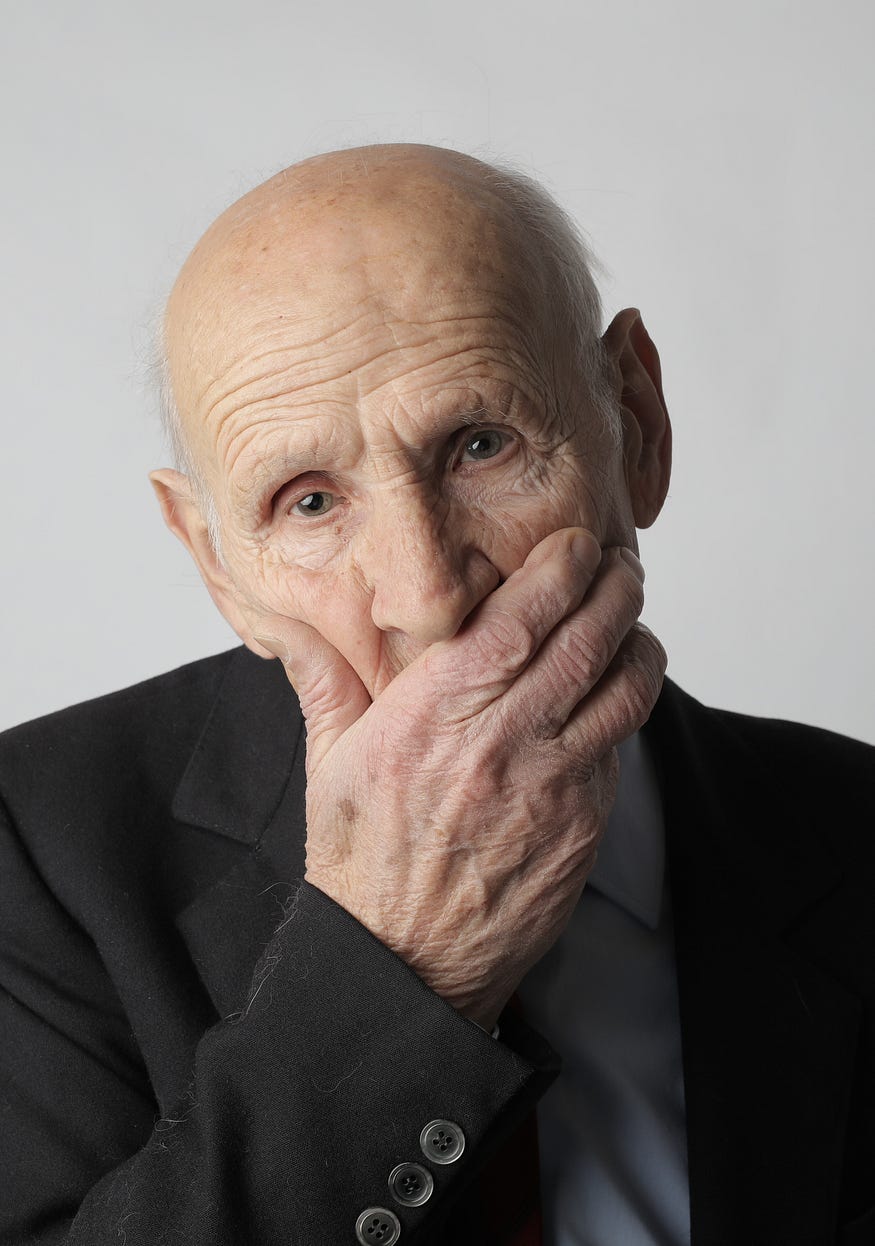Single after divorce or death, not flourishing.
I know several men who are into older age, older than sixty, and not doing well. These struggling men include a former very successful businessman and others who also had respected jobs. They are now unemployed into retirement, divorced, and single. The “retirement” may have happened years earlier than 65 when a job loss transitioned into early retirement without a plan.
I have reached out to a family member who doesn’t answer mail, has turned off his telephone, and doesn’t own a computer. Short of showing up at his door 1500 miles away, he has made himself unavailable. I depend on his sister to physically check-in on him every so often.
I have read, and know of, the phenomenon of the ne’er-do-well son moving into the family home with aging parents, to provide him with housing and the parents with care. The problem is that this situation is one of necessity, not the choice of who would be the best care provider (in fact, older parents may worry about the struggling adult or he may be a financial burden).
Single women seem to have the fallback of a social network. I know women who struggle financially but have robust friendships and family relationships to help them through older age. Perhaps it is a celebration of freedom from the burdened, not happy, marriage that provides older women a happier choice. I have happily-single women in my network who are long divorced from marriages that didn’t work for them.
When I was growing up as a boomer child, most of my friends’ mothers were stay-at-home housewives. The exceptions were teachers or secretaries. Looking back on it, most of those working women were married to alcoholics or otherwise unreliable husbands. But in old-fashioned marriages, the husband and wife stuck together, and the wives were the glue that attached their ne’er-do-well husbands to extended family or the rest of the world. Annual Christmas letters with news updates were most often written by women, as was other family correspondence.
Men, of course, were married to dysfunctional women, but there seems to be less written about this situation–or is it a less frequent occurrence?
In reading studies of happiness and marital status, I was stuck finding any consistent conclusions as there are so many variables now: children, no children, cohabiting, and multiple marriages.
Extended family members have divorced when the situation becomes intolerable. Depression is probably an undiagnosed or untreated factor in men. It may be that old-fashioned notions of independence interfere with men seeking treatment as often as women. Several articles in the literature examine the older, depressed male issue.
A ten-year-old study from the U.S. National Institute of Health discusses male shame when images of masculinity no longer meet the perceived reality of lives men are inhabiting. This more recent study from the UK identifies these issues for older, lonely men:
When talking about loneliness, the men spoke about:
being socially discarded
not having a purpose
a sense of emptiness, or cold ache
being of little value to others (‘feeling like nobody cares’)
feeling cut off from broader society.
The study, Older Men at the Margins, was conducted by Dr. Paul Willis at the University of Bristol.
———————-
I like men. I am surprised by some who have faltered into old age. I also enjoy robust friendships with women, who have mostly flourished into older age.
I recognize that my point-of-view is skewed by my lived experience. What is your experience?


Cheryl West
Men identify much of their self-worth through their job, their work, and secondly through providing for the family. Women identify more with their children and keeping house. When retirement happens men no longer have that support of identity; women still have their children and a home. This is generally true for my parents generation and my baby-boomer one. It’s not true for everyone of course. Just as it’s not every man who is depressed and feeling they have no purpose as an elder.
SingingFrogPress
This rings many bells for me. I believe we woman are socialized/trained to be care-givers from the very youngest ages. Men are taught to assume they will be cared for by women. Men who end up alone in old age are not equipt in so many ways to feed themselves, care for their homes-you know regular enough cleaning, dusting, vacuuming, keeping kitchen and bathroom areas reasonabye hygenic (sp?), putting stuff away or throwing away (mail, papers and publications, discarded clothes, no longer used possessions) to feel cheered by their surroundings. I haven’t done the research but I’m willing to bet most women have far more friends (close, occasional, nearby and distant) with whom they are in various levels of regular contact than men. We need communion and connection, companionship, and activities that keep us engaged, interested and involved in making new connections. I believe women are more skilled and practiced at doing all this. Having always assumed we would care for others, and usually gotten plenty of practice at it as mothers, mates, in our jobs, we are pretty good at caring for ourselves if we end up living alone in later life.